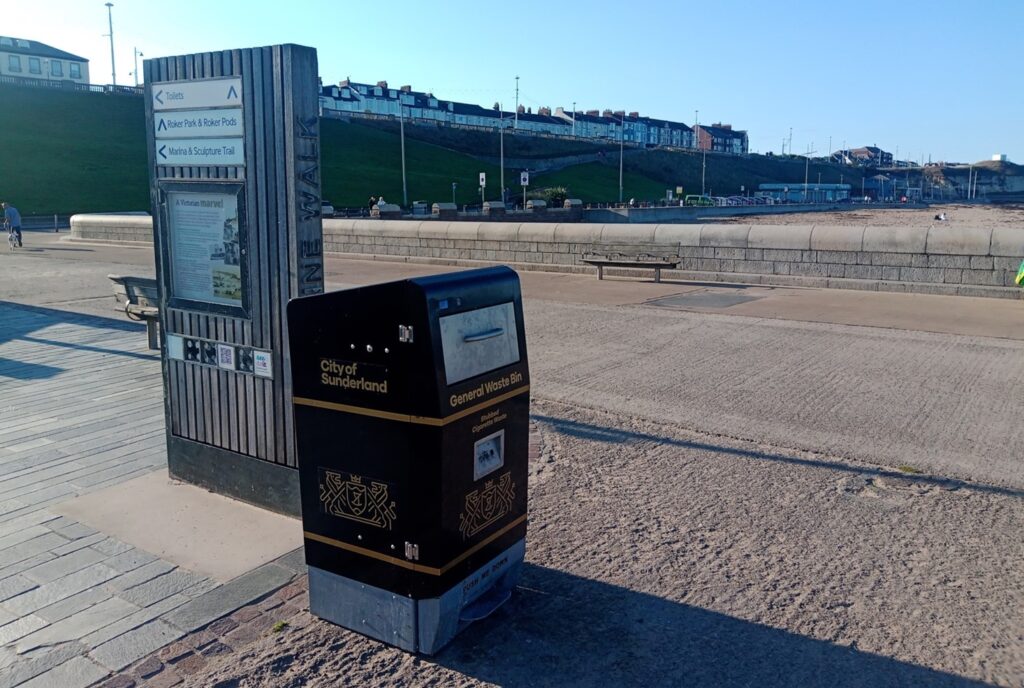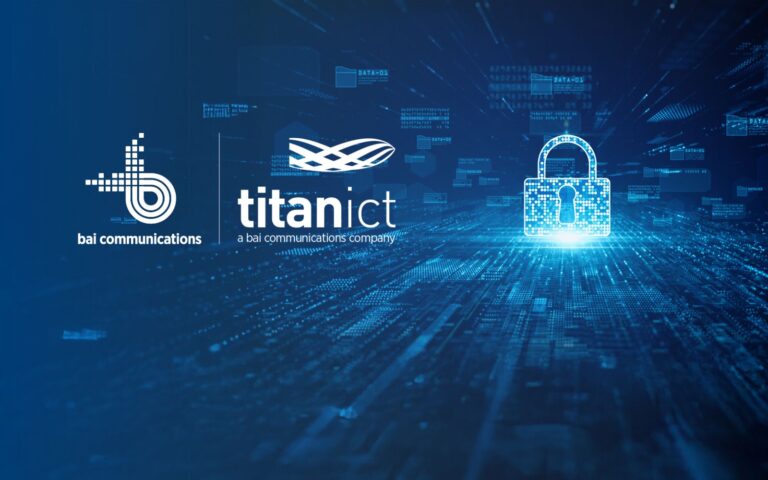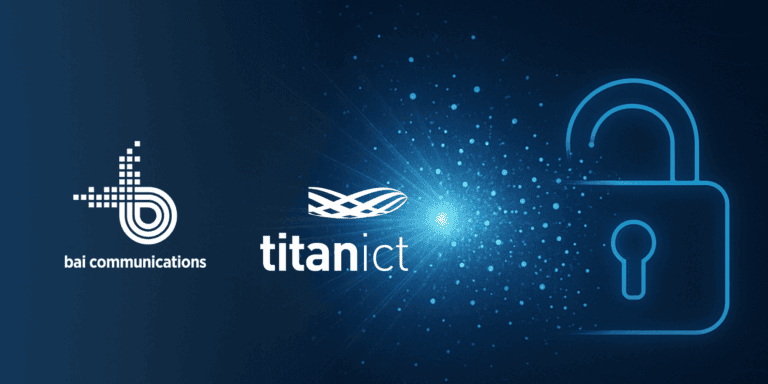Solar-powered ‘smart compactor bins’ are some of the latest innovations being successfully piloted in Sunderland, thanks to its leading digital expertise and growing smart city infrastructure developed in partnership with BAI Communications*.
The trial period, during which a number of smart bins were installed across the city, has been in place across the summer and continues throughout September.
The bins are among the latest innovations being piloted across Sunderland to realise the benefits technology can bring to residents, businesses and visitors, as well as the local authority.
The smart bins contain a solar powered ram that compacts the waste inside, enabling each bin to store up to five times more waste than an equivalent size standard bin. Each smart compactor bin uses a regular household wheelie bin to contain the compacted material inside, making them ideal for the council’s teams to empty using existing equipment.
What’s more, the sensors within each bin constantly report on the quantity of waste inside them, informing the council’s environmental services team remotely and instantly how often they are being used, and when the optimum time is to empty them.
This smart technology utilises small sensors and cellular transmission to communicate usage and other useful data – these devices can also be retrofitted into a whole range of equipment to upgrade existing commercial or public bins across the city.
Liz St Louis, director of Smart Cities at Sunderland City Council, said: “We know that technology has the capability to deliver advancements across health, education and more, including our own council services, enabling us to deliver a continuously improving offer to residents, businesses and visitors to the city.
“In our digitally connected, smart city, it is great to see our ambitious plans coming to fruition. Many pilots, such as the smart bin trial, are helping us to make better, data-informed and more sustainable decisions.”
Andy Wilson, Environmental Services manager at Sunderland City Council, added: “The introduction of smart bins and associated technologies has the potential to enhance a modern intelligent waste management system, which in turn can contribute to wider sustainability goals within our low carbon action plan.
“The smart bins don’t need to be emptied as often, which is not only great for the city’s carbon footprint, but also represents considerable fuel savings too with the added benefit that the time saved helps to enable staff to focus on other duties and enhancement work.”
Smart bins are part of a series of smart technology-enabled enhancements that the council are exploring in partnership with BAI Communications (BAI). It comes after Sunderland City Council and BAI signed a new agreement with the University of Sunderland to build a 5G test lab on the Sir Tom Cowie Campus at St Peter’s, enabling further Internet of Things testing.
Other future initiatives include water monitoring, smart life buoys, a Wi-Fi messaging platform and interactive play parks.
Find out more about the smart bins trial at https://www.youtube.com/watch?v=TXavaEooyB0
*BAI Communications is now Boldyn Networks in the Northern Hemisphere.






